Dementia research news archive: 2015-2023

Recommendations for new generation of Brain Health Services, to help prevent dementia
A European Task Force involving the University of Exeter has created an evidence-based road map for Brain Health Services, new services designed to support people in keeping their brains healthy and reducing their risk of developing dementia.

Three or more concussions linked with worse brain function in later life
Experiencing three or more concussions is linked with worsened brain function in later life, according to major new research.

£2.6 million to fund largest ever study into social prescribing for dementia
A new study will investigate how social prescribing could be used in promoting a higher quality of life for people living with dementia.

Study is first to show role of genomic changes in specific brain cells in Alzheimer’s disease
New research - which studied genomic changes in different types of brain cell - has yielded a potentially surprising result.

Documentary film about improving the experience of living with dementia premieres
An innovative and interactive play exploring communication involving people with dementia has been made into a film.

University of Exeter researcher’s thought-provoking photograph among winners in Alzheimer’s Society’s first ever image competition
A thought-provoking photograph captured by a University of Exeter researcher has won the ‘Unexpected’ category in Alzheimer’s Society’s first ever image competition.

Harmful antipsychotics prescribing jumped 50 per cent in dementia care homes during pandemic
Prescribing of potentially harmful antipsychotics to people with dementia has increased by more than 50 per cent on average in care homes during the pandemic, new research has found.

Socioeconomic deprivation associated with increased dementia risk, regardless of genetics
People who experience high socioeconomic deprivation are significantly more likely to develop dementia compared to people of better socioeconomic status, regardless of genetic risk, new research concludes.

Shaping the future of early-stage dementia support
A pioneering international study, coordinated in the UK by the University of Exeter, is exploring how health promotion and self-management programmes could be used to support people with early-stage dementia and improve their health outcomes.

Gender differences in behaviours linked to faster cognitive decline revealed in research
Men who experience behaviour changes including apathy or having false beliefs and perceptions in later life are at risk of faster cognitive decline than women, according to new research.

Multiple heart-related conditions linked to triple dementia risk, regardless of genetics
Having multiple conditions that affect the heart are linked to a greater risk of dementia than having high genetic risk, according to a largescale new study.

Supporting staff to improve the lives of those living with dementia in care homes
A study to evaluate a care home dementia training programme that could improve the lives of the most vulnerable people with dementia in the UK has begun as part of the National Institute for Health and Social Care Research (NIHR) National Priorities Programme (NPP).

University spin-out company aiming to treat degenerative disease announces funding
A biotech company which aims to harness University of Exeter research to develop new therapeutics to stop the progression of degenerative diseases has received new seed financing.

Research aims to improve sleep for people with dementia
Two new research programmes are helping find new ways to support people with dementia who experience problems with sleep.

Scouse musician living with dementia writes song for research project
A Scouse musician who has dementia has written an uplifting song to help support others living with the condition, as part of a major research project.

Can beetroot juice help keep our brains sharp in later life? New study investigates
An innovative clinical trial will investigate how drinking beetroot juice impacts brain function in older adults, via the bacteria that live in our mouths.

Seeing the same GP improves treatment for people with dementia, study finds
People with dementia who see the same GP each time have lower rates of health complications and fewer emergency hospital admissions, according to a new study.

Study finding “recurrent delirium over 12 months predicts dementia” wins prestigious prize
A research paper involving the University of Exeter has been awarded the prestigious Dhole-Eddlestone Memorial Prize 2022.

Reduce frailty to lower dementia, study finds
Reducing frailty in older adults could be an effective strategy to prevent dementia, according to a largescale new study.

Artificial intelligence accurately predicts who will develop dementia in two years
Artificial intelligence can predict which people who attend memory clinics will develop dementia within two years with 92 per cent accuracy, a largescale new study has concluded.

Falls in care homes can be significantly reduced with intervention, says new study
The largest study of care homes in the UK has found that a co-ordinated approach to fall prevention in care homes is effective in significantly reducing the number of times residents fall.

New resource launched to help people live as well as possible with dementia
The experience of thousands of people affected by dementia has fed into a new resource which aims to be a comprehensive guide to supporting people to live as well as possible with the condition.

Poor sleep linked to feeling older and worse outlook on ageing, which can impact health
Poor sleep in the over 50s is linked to more negative perceptions of ageing, which in turn can impact physical, mental and cognitive health, new research has revealed.

£2.5 million to improve treatment of delirium in hospitals
A new £2.5 million research programme led by the University of Exeter will find new ways to help people recover from delirium after hospital stays, which could stop dementia symptoms getting worse.

Exeter research results in practical self-help guide for people with dementia
A free self-help guide is now available to support people diagnosed with dementia to achieve their goals to enjoy daily activities and independent living.

Dementia rates higher in men with common genetic disorder haemochromatosis
New research has found that men who have the Western world’s most common genetic disorder are more likely to develop dementia, compared to those without the faulty genes

Rotten Egg Gas Could Guard Against Alzheimer’s Disease
Typically characterised as poisonous, corrosive and smelling of rotten eggs, hydrogen sulfide’s reputation may soon get a facelift

Brain’s ‘speedometer’ could help solve part of dementia puzzle
Nearly one million people in the UK have dementia

Participants wanted for most in-depth brain study of early Alzheimer’s disease
Exeter researchers are seeking local volunteers to take part in the world’s most detailed study into the onset and development of Alzheimer’s disease

The danger of Z-drugs for dementia patients
Strong sleeping pills known as ‘Z-drugs’ are linked with an increased risk of falls, fractures and stroke among people with dementia

New ‘epigenetic’ clock provides insight into how the human brain ages
A relatively new concept – the epigenetic clock – could inform us about how swiftly we age, and how prone we are to diseases of old age

£1.2 million to roll-out dementia care home programme to COVID-hit sector
£1.2 million in government funding will help researchers develop an innovative online programme to improve and personalise care for people with dementia in care homes.

Five Simple Lifestyle Changes That Can Prevent Dementia
40% of all dementia diagnoses can be avoided

Dementia could be prevented or delayed by 40 per cent by targeting 12 risk factors throughout life
Experts have increased the number of lifestyle factors known to influence our risk of developing dementia from nine to 12.
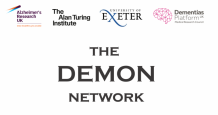
Partnership to drive forward experimental dementia research with data science and artificial intelligence
A new partnership brings together a combination of around a thousand scientists and innovators

Online exhibition and new book celebrates art made by people living with dementia
An art project involving people living with dementia has led to a book as well as an art exhibition that has been moved online to be enjoyed by all.

Dementia gene raises risk of severe COVID-19
Having a faulty gene linked to dementia doubles the risk of developing severe COVID-19, according to a large-scale study.

Dementia among “overlooked” conditions linked to high risk of severe COVID19 in older people
A new analysis shows which certain pre-existing diseases may put older people at risk of developing more severe COVID-19, implying they may need special treatments and more shielding.

Five tips from project to support people with dementia and carers in COVID-19 lockdown
New guidance has been developed to support people with dementia and family carers who are facing isolation and reduced services as a result of COVID-19.
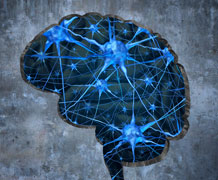
Mental health and brain research must be higher priority in global COVID-19 response
A new paper published in The Lancet Psychiatry highlights an urgent need to tackle the harmful impacts of the COVID-19 pandemic on mental health.

£73,000 funding to drive forward dementia diagnosis technology
A dementia diagnosis software system developed at the University of Exeter has received three grants totalling £73,000.

Build-up of brain proteins affects genes in Alzheimer’s disease
New research has shed fresh light on how the build-up of two proteins in the brain might affect the activity of genes involved in Alzheimer’s disease.
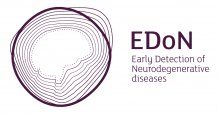
Exeter in global initiative to use wearables to revolutionise dementia detection
The University of Exeter is part of a global initiative to revolutionise the early detection of neurodegenerative diseases like Alzheimer’s.

£1.2 million USA grant to investigate psychosis in Alzheimer’s disease
Funding expected to total £1.2 million ($1,566,874) over four years from the USA’s National Institutes of Health (NIH) will help Exeter academics advance understanding about the underlying biological mechanisms leading to some people with Alzheimer’s disease developing psychosis.
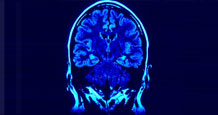
Alzheimer’s amyloid build-up affects certain parts of brain cells more than others in mice.
A protein that is linked with Alzheimer’s Disease has been found to be more likely to affect certain parts of brain cells that send messages than other parts of the cells.

£2.2 million collaboration to enhance quality of life in care homes
The University of Exeter is collaborating in a £2.2 million project to improve how researchers and health and social care services can use data to improve the care and quality of life for care home residents, families and staff.

Leading dementia research charity funds vital equipment at the University of Exeter
Alzheimer’s Research UK has committed nearly £30,000 to support pioneering dementia research at the University of Exeter.

Pioneering Exeter dementia research nominated for higher education “Oscars”
A pioneering research project to improve lives for people with dementia in care homes has been nominated for a prestigious award.

Analysis reveals economic cost of Alzheimer’s disease and dementia are ‘tip of the iceberg’
A new research review highlighting the hidden costs of dementia suggests that traditional measures only show the ‘tip of the iceberg’ of the cost impact on society.

Apathy: The forgotten symptom of dementia
Apathy is the most common neuropsychiatric symptom of dementia, with a bigger impact on function than memory loss – yet it is under-researched and often forgotten in care.

Wearing hearing aid may help protect brain in later life
A new study has concluded that people who wear a hearing aid for age-related hearing problems maintain better brain function over time than those who do not.

Healthy lifestyle may offset genetic risk of dementia
Living a healthy lifestyle may help offset a person’s genetic risk of dementia, according to new research.

Research shows carers’ experience can influence how well a person lives with dementia
New research has identified how a carer’s experience can impact on the ability of a person with dementia to ‘live well’ with the condition.

Regular crosswords and number puzzles linked to sharper brain in later life
Older adults who regularly take part in word and number puzzles have sharper brains, according to the largest online study to date.

Artist collaboration creates banner to showcase allotment experiences of dementia
A banner created by people with dementia working with a trio of well-known artists has been unfurled at a special ceremony in Exeter this month.

RAMM hosts dementia-friendly museum tours
Exeter’s popular museum is opening its doors to people living with dementia, and their carers, in a series of bespoke dementia-friendly events.

International research prize awarded to Exeter neuroscientist
A University of Exeter researcher has been awarded the Cavanagh Prize, selected as the top nominee from candidates across Europe.

Exeter receives nearly £900,000 to fund dementia research
Researchers at the University of Exeter Medical School have been awarded up to £900,000 to fund leading research into epigenetic causes of dementia.

Research highlights what helps people live well with dementia
New research has identified the factors that enable people with dementia and their carers to live as well as possible.

Alzheimer’s Society Chief Executive to receive honorary degree from Exeter
The Chief Executive of one of Britain’s leading dementia charities has been awarded an honorary degree in recognition of his outstanding contributions to dementia research.

More than £340,000 funding for international trial to support people with dementia
More than £340,000 of UK funding will support the University of Exeter’s role in a new trial that aims to test a new way of supporting people who live with dementia to cope with life’s challenges.

Study Finds Biases in Widely Used Dementia Identification Tests
Quick tests used in primary care settings to identify whether people are likely to have dementia may often be wrong, according to a study published in the November 28, 2018, online issue of Neurology® Clinical Practice, an official journal of the American Academy of Neurology.

Improving dementia care and treatment saves thousands of pounds in care homes
Improving staff training in care homes and reducing reliance on harmful medications saves thousands of pounds per year, as well as improving quality of life and reducing agitation in dementia, new research has demonstrated.

Health services must address multiple conditions in dementia care
Most people living with dementia also have at least one other health condition, and health services need to adapt to optimise their health and quality of life, a new study concludes.

Alzheimer’s Society to fund Exeter research into brain inflammation
The University of Exeter has received a £361,000 grant from the Alzheimer’s Society for a three year project to investigate the role that infections have in driving inflammation in the brain of someone with Alzheimer’s disease.

£2.7m study to focus on dementia support workers in primary care
A new study is investigating how to introduce dementia support workers into GP surgeries, with the ultimate aim of improving the quality of life for dementia patients and their carers.

Losing control of gene activity in Alzheimer’s disease
Pioneering research into the mechanisms controlling gene activity in the brain could hold the key to understanding Alzheimer’s disease and might help identify effective treatments in the future.

Exeter expert to advance artificial intelligence use in dementia identification with Turing Fellowship
Dr David Llewellyn has been awarded the prestigious Turing Fellowship which will aim to accelerate the application of machine learning within the healthcare industry.

Mental Well-Being Related to Better Brain Health in Older Adults
A positive sense of mental well-being is related to better brain health among older adults, according to a new report issued today by the Global Council on Brain Health (GCBH) and involving University of Exeter research.

New state-of-the-art optical spectrum analyser will help to detect disease
Pioneering research, conducted by Professor Frank Vollmer at the University of Exeter’s Living Systems Institute, will advance even further thanks to support from the Berthold Leibinger Stiftung.

Discovery could explain failed clinical trials for Alzheimer’s, and provide a solution
Researchers have discovered a vicious feedback loop underlying brain degeneration in Alzheimer’s disease which may explain why so many drug trials have failed.

Stroke doubles dementia risk, concludes large-scale study
People who have had a stroke are around twice as likely to develop dementia, according to the largest study of its kind ever conducted.

World experts target guidance on managing dementia symptoms
New research which brings together the views of the world’s leading experts has concluded that non-drug approaches should be prioritised in treating agitation in people with Alzheimer’s Disease.

Exeter researchers raise thousands for Alzheimer’s Society in mammoth bike challenge
Two researchers at the University of Exeter have pedalled a whopping 460 km from London to Paris, raising thousands of pounds for Alzheimer’s Society in a gruelling four-day challenge.

Just ten minutes of social interaction a day improves wellbeing in dementia care
An e-learning programme that trains care home staff to engage in meaningful social interaction with people who have dementia improves wellbeing and has sustained benefits.

Better clinical trials must address “critically low” dementia research shortfall
New research gives insights into how the design of clinical trials can improve, with new insights into the “critically low” research pipeline and improve the chances of finding effective dementia therapies.

Commonly prescribed medications linked to rise in harmful side effects in dementia
Medications which are commonly prescribed to people with dementia have been linked to an increase in harmful side-effects, research involving the University of Exeter has concluded.

Exeter in launch of major US study on brain ageing
The University of Exeter is collaborating with Synexus, the leading global network of dedicated research sites, to launch one of the largest, registry-based research initiatives in the United States to help understand how healthy brains age.

Professor boosts dementia expertise at Exeter
A professor who is an expert in older people's medicine has further bolstered Exeter's research expertise in dementia

Exeter professor inputs into new NICE guideline
NICE (the National Institute for Health and Care Excellence) has published a new guideline on assessment, management and support for people living with dementia and their carers.

Dementia experts invite public to research open day
Members of the public are being invited to a free event in Exeter on Friday 15 June, to learn more about dementia and the latest research underway in the South West to tackle the condition.

Researchers launch dementia project to combat ‘frightening' hospital experience
A group of researchers from the University of Exeter Medical School has launched a project to improve our understanding of how best to help people with dementia and their loved ones in hospital.

Pioneering studies in Exeter funded by leading dementia research charity
Researchers in Exeter have received a £50,000 funding boost for pioneering dementia research in the city. The announcement of this new funding comes during Dementia Action Week, a national campaign aimed at raising awareness of dementia and encouraging people to get involved with efforts to help people living with the disease.

Research reveals key factors to support quality of life in dementia
A robust research analysis has identified what factors can be targeted to support people to live as well as possible with dementia.

£250,000 funding boost to investigate whether vitamin D promotes brain health
A robust clinical trial to investigate whether taking vitamin D can help keep our brains sharp in older age has been supported by a donation of nearly £250,000 from the J P Moulton Charitable Foundation.

Exeter partners with Dementias Platform UK
The University of Exeter Medical School has been confirmed as a full partner of Dementias Platform UK (DPUK), a partnership of leading universities and prominent industry names striving for better research in dementia.

Isabel to take student lead at international Alzheimer’s conference
An Exeter PhD student has been selected as a lead student at the upcoming Alzheimer’s Association International Conference (AAIC).

Memory loss identified years before Alzheimer's symptoms appear
Experts have developed a cognitive test to detect subtle memory deficits years before Alzheimer's disease symptoms develop.

Dementia care improved by just one hour of social interaction each week
Increasing the amount of social interaction for people with dementia living in care homes to just one hour a week improves quality of life when combined with personalised care.

Brain food: How to eat well for a healthy brain in later life
A new international report gives the clearest evidence to date on the impact of diet on brain health in older adults.

Over-60s needed for memory study
People aged over 60 who suffer minor memory problems are needed for a new study at the University of Exeter.

Exeter dementia research showcased in New York
Exeter’s world-leading dementia research will soon be showcased at a special event in New York.

Students bring Yuletide merriment to care home
A group of Medicine students from the University of Exeter have organised a Christmas party to boost engagement with the arts for people living in a residential care home.

Helping the UK visitor economy to become more dementia friendly: new research findings
An estimated 46.8 million people are affected by dementia worldwide, a figure expected to double every 20 years reaching around 131.5 million by 2050.

Research will help GPs diagnose dementia more accurately
Research at the University of Exeter designed to help identify patients with dementia and reduce the pressure on health services has received a generous boost of £120,000 from the Halpin Trust.

Parental lifespan genes could hold clue to longer life
A large-scale international study led by the University of Exeter Medical School has discovered new genes linked to parents’ lifespan – which could one day be targeted to help prolong human life.

Dementia research at Exeter gets £190,000 boost
The dementia research charity BRACE and Kirby Laing Foundation have together awarded more than £190,000 to the University of Exeter Medical School to support cutting-edge genomic research to better understand the causes of dementia.

Rising stars in antibiotic resistance research awarded Industrial Fellowships
Two talented young researchers at the University of Exeter Medical School’s European Centre for Environment and Human Health, have been awarded prestigious Industrial Innovation Fellowships by the National Environment Research Council (NERC).

Hong Kong residents invited to study to maintain healthy brain
People in Hong Kong aged 50 and over are being invited to join a ground-breaking online study called PROTECT, to help learn how they can maintain a healthy brain in later life.

Tales and imagery of life with dementia captured on Exeter allotment
People whose lives have been affected by dementia have worked with well-known professional artists to create insightful images and poems that capture some of their experiences, to form a new book.

Public invited to interactive talk on dementia in Exeter
Members of the public are being invited to an interactive talk, to hear more about the personal experiences of those living with dementia, and the portrayal of the condition in the media.

Truro event to boost older people’s wellbeing through nature
People with dementia and their carers are being invited to an interactive event which will discuss the significant benefits nature can have on their wellbeing.

Global experts seek to end damaging dementia psychosis cycle
A new research report calls for a change in approach in the treatment of psychosis in dementia, to find alternatives to highly damaging antipsychotics.

Psychosis in Parkinson’s dementia: new treatment provides hope
New research involving King’s College London and the University of Exeter has highlighted the benefits of a promising new treatment which could relieve psychosis in thousands of people with dementia related to Parkinson’s disease.

£500,000 for dementia brain research at Exeter
Alzheimer’s Research UK (ARUK) has announced more than £500,000 in funding for researchers at the University of Exeter Medical School to advance understanding of how dementia affects the brain.

How to keep your brain sharp in older age
New research from the Global Council on Brain Health (GCBH) has revealed which mentally engaging activities best keep the brain sharp.

Dementia researchers raise thousands for Alzheimer’s Society in epic bike challenge
Five researchers at the University of Exeter have pedalled from London to Paris, raising thousands of pounds for Alzheimer’s Society.

Alzheimer's Research UK Chief Executive awarded honorary degree
Hilary Evans, Chief Executive of Alzheimer's Research UK, was awarded an honorary degree from the University of Exeter in recognition of her work at the helm of the UK’s leading dementia research charity.

One in three cases of dementia could be prevented by targeting risk factors from childhood onwards
One in three cases of dementia could be potentially prevented if brain health is improved throughout life.

People with dementia benefit from goal-oriented therapy
Personalised cognitive rehabilitation therapy can help people with early stage dementia significantly improve their abilities.

Daily crosswords linked to sharper brain in later life
The more regularly people report doing word puzzles such as crosswords, the better their brain function in later life, a large-scale and robust online trial has found.

One social hour a week in dementia care improves lives and saves money
Person-centred activities combined with just one hour a week of social interaction can improve quality of life in care homes.

Research shortfall on common form of dementia highlighted
New research has highlighted the scarcity of evidence on the prognosis of dementia with Lewy bodies.

£2 million for Exeter Centre of Excellence in dementia care research
Alzheimer’s Society has announced today that it has committed almost £2million to the University of Exeter.

Exeter researchers unite and take on 350 mile cycle challenge to defeat dementia
A team of six passionate dementia researchers from the University of Exeter are uniting against dementia and cycling 350 miles from London to Paris in a bid to raise £12,000 for the charity Alzheimer’s Society.

New international guidelines to identify dementia with Lewy bodies
New international guidelines will help ensure an accurate diagnosis and the best possible care for people with dementia with Lewy bodies.

Five ways people can act on dementia
Five ways people can act on dementia, backed by research

Low levels of ‘memory protein’ linked to cognitive decline in Alzheimer’s Disease
Research has discovered that low levels of the protein NPTX2 in the brains of people with Alzheimer’s may change the pattern of neural activity in ways that lead to learning and memory loss.

Want to stay mentally healthy in older age? Stimulate your brain in early life
Stimulating the brain by taking on leadership roles at work or staying on in education help people stay mentally healthy in later life, according to new research.

Global dementia expert gives first lecture as head of Exeter Medical School
World-leading dementia expert Professor Clive Ballard will deliver his first lecture since joining the University of Exeter.

Can online therapy reduce distress in dementia carers?
A new study is inviting people who care for someone with dementia to help investigate whether an online therapy can help carers cope with feeling of stress, anxiety or depression.

Dementia: The right to rehabilitation
Rehabilitation is as important for people with dementia as it is for people with physical disabilities, according to a leading dementia expert.

Exeter scientist wins prestigious dementia prize
University of Exeter researcher Dr Katie Lunnon has won the Early Career Investigator of the Year Award at the Alzheimer’s Research UK Conference 2017.

World expert in brain function adds to Exeter’s research excellence
A world expert in measuring brain function will give his first lecture at the University of Exeter.

New report recommends measures to improve dementia care
Enabling people with dementia to maintain control of the decisions surrounding their care is key to avoiding isolation, according to a new report by the British Psychological Society (BPS).

Award-winning cartoonist joins experts to discuss dementia care and support
Experts in dementia and those affected by the emotional experience of having a loved one with the condition will join an award-winning cartoonist to discuss the care and support available for those with memory loss at an event today.

New Medical School Pro-Vice Chancellor now in post
Globally-renowned dementia and ageing expert Professor Clive Ballard is now in post as the new Dean and Pro-Vice Chancellor of the University of Exeter Medical School.

New laser to help Exeter scientists study brain changes in dementia
Dementia researchers have been awarded £91,500 to purchase a new laser to create a state-of-the-art microscope, transforming their ability to image the brain.

Exercise can change brain structure and reduce dementia risk
Getting regular exercise can lower the risk of cognitive decline and can even change our brain structure.
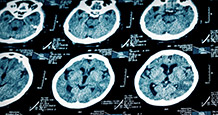
Exeter researchers to hold free dementia information day
Scientists in Exeter are inviting the public to a free meeting on Wednesday 6 July to discuss current dementia research.

Dementia researchers tell their story on BBC’s Horizon
Researchers from the University of Exeter will appear on BBC Two’s flagship science strand Horizon this week.

University of Exeter part of £13million mental health biomarker study
Researchers from the University of Exeter are involved in a major European £13.3 million funding initiative which aims to unpick the biological reasons underlying social withdrawal.

House of Commons showcase for University of Exeter dementia research
University of Exeter research which can help people living with early-stage dementia to manage their everyday lives and remain independent will be showcased by politicians at the House of Commons.

Dementia: “illness” label can lower mood
People who perceive dementia symptoms as an illness feel more negative than those who see it as an inevitable part of getting older, a new study indicates.

Dementia: new insights into causes of loss of orientation
New research has revealed how disease-associated changes in two interlinked networks within the brain may play a key role in the development of the symptoms of dementia.

Exeter scientist secures prestigious award for mental health research
A University of Exeter scientist has been awarded a Distinguished Investigator Award by the Brain and Behavior Research Foundation, a US charity that funds research into the causes of mental illness.

More than £500,000 to fund dementia research at Exeter
More than half a million pounds of new cutting-edge research which aims to advance us towards a dementia cure and improve dementia care has been awarded to the University of Exeter Medical School by Alzheimer’s Society.
